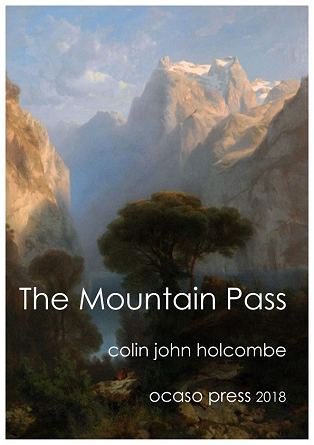Ocaso Press
Ltda. provides translations,
guides, theatre scripts, articles and poetry of recognized literary
quality to schools,
universities and discriminating readers across the English-speaking
world. Many have been translated into other languages, European and
non-European.
All material is free, and pdf ebooks can be read on tablets with
screens as small as seven inches. Over 50,000 ebooks are downloaded
annually from the Ocaso website.

Of special note are four guides published by Ocaso Press Ltda. All are extensive, free, up-to-date and
copiously referenced — to help poets get their work written and published: on writing poetry, literary criticism, literary theory and publishing opportunities.
For simple entertainment,
Ocaso Press also publishes three free free novels, and diverse volumes of poetry: the author practises what he preaches.
Ocaso
Press is not anti-Modernist — very far from it — but does contend that
many of today's poetry styles are restricting and wrong-headed. Theory
has replaced appreciation, with works being valued more for what can be
read into them than any literary qualities they may possess. Important
aspects of literature — sensibility, generous tastes, wide experience —
have been subverted by speculative model-building.
The Romantics sought new
areas of feeling — in the past, wild landscapes, the hallucinations of
drugs. The Symbolists cultivated unusual states of mind with a fluid
and often musical allusiveness. Imagists pared down poetry to a few
striking pictures. The Futurists were stridently iconoclastic. Dadaists
and Surrealists extended the irrational. The Modernists turned
themselves into an exclusive caste — since taken over by academia — who
intellectualised their superiority over the conventional majority.
Postmodernists have retreated further, and claimed that poems
exist — and perhaps even reality itself — only in the words themselves.
In
contrast, Ocaso Press returns literature to its original intentions,
which is to give us a meaningful and sense-laden impression of our
lives. A key element in poetry is verse, both formal and free verse
styles. Like all art forms, verse is artificial, but nonetheless gives
structure to lines, and liberates words from their
everyday uses and connotations. Words for poets have special meanings,
appropriate uses, associations, connotations, etymologies, histories of
use and misuse, moreover. Out of these properties the poetry is built,
even if the end cannot be entirely foreseen but grows out of the very
process of deployment, that continual, two-way dialogue between writer
and poem.
Perhaps encouraged by the flexibility of today's cut-up prose,
the great majority of academics and college students have only
the most rudimentary ear for verse of any description. And if that's an
extraordinary situation, it is one repeated in many of the experimental
arts where the critical theory is abstruse and taxing but often
produces something prosaic in the extreme. The craft aspect is entirely
overlooked, though it must be self evident that trying to write poetry
without developing an ear for verse is akin to writing an opera while
remaining ignorant of music.
Amateur and serious poems have
become markedly different entities, and there is little work that
bridges the gap and combines the themes of one with the intelligence
and
wide reading of the other. Matters are
happily different in painting, however, where the traditional work
marketed by leading galleries still displays genuine
gifts, sensibilities and sound technique. That work sells to art lovers
because their taste has been formed by thousands of delighted hours
spent in galleries, exhibitions and painting classes — i.e. by an
informed love of painting rather than a desire for acquisition or
status. Being genuine, that taste is also less susceptible to the
promotional word-spinning of contemporary art-critics, necessary though
those promotions may be for reputations and prices. Readers familiar
with magazines like 'International Artist'
(www.internationalartist.com) will know what is meant by traditional
standards, where work is show-cased by demonstration and clear prose.
In short, Ocaso Press applauds and exemplifies the great expansion
that
Modernism has enabled — in styles and content — but wants
that expansion maintained, not closed off into self-admiring cliques
created by the poetry establishment's need to be ever more radical.
The guides adopt balanced positions of contentious issues, and are
often more detailed — replete with examples, arguments and references —
than books offered by the commercial and academic presses.
The novels are simply entertainment.
The poem collections employ strict and free verse styles, but don't shy
away from the 'grand narratives' that Post-modernism has abandoned.
Many deal with important issues, therefore, and behind even the verse
tales is the extensive research that any decent historical novelist
will undertake.
Translations are literary rather
than academic, but are generally close to the prose sense, often indeed
line for line. By employing traditional verse skills they aim to give
some indication of the splendours of the original works, and make the
translations worth reading in their own right. All ebooks are informed
by a wide reading in the relevant scholarship, and — where feasible (in
French, Russian and Latin, but not Greek or Sanskrit) — provide facing
texts.